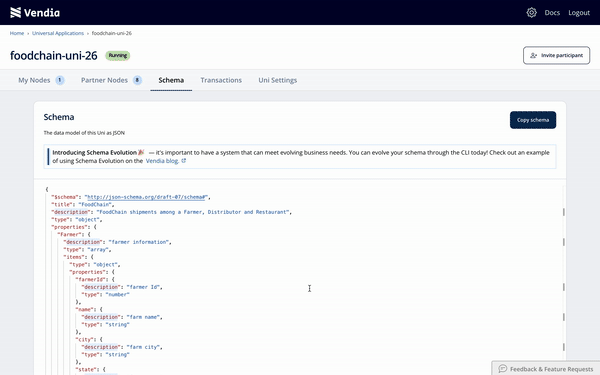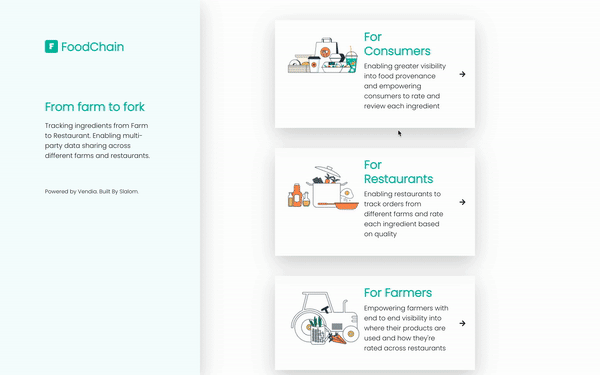

Capabilities for Data-Driven Businesses | Slalom Technology
source link: https://medium.com/slalom-technology/unlocking-potential-capabilities-for-data-driven-businesses-d908c137d340
Go to the source link to view the article. You can view the picture content, updated content and better typesetting reading experience. If the link is broken, please click the button below to view the snapshot at that time.
Unlocking Potential Capabilities for Data-Driven Businesses
Background
We are living in a world where data is growing exponentially, and it has become more important than ever to analyze and keep track of it. Data sharing between businesses has become important now more than ever since they are dependent on each other to function.
“There were 5 exabytes of information created between the dawn of civilization through 2003, but that much information is now created every two days.”
~ Eric Schmidt, Executive Chairman at Google
Let's look at a business problem where data grows rapidly across organizations, evaluate which approach would be effective for real-time data sharing, and keep track of any changes made to it.
Business Problem
If we consider the food we eat at restaurants, the ingredient that goes into the making of an item then served to the consumer has been sourced from somewhere else. It’s shipped by a distributor, used in preparation by the chef at a restaurant, and then gets served to customers. Here four different entities are involved — the farmer, the distributor, the restaurant, and the consumer. Each entity is responsible for some metadata associated with the ingredient. The farmer would have inventory and price, the distributor would have shipment details, the restaurant would have in-stock details and the consumer just has the information that it was used in the preparation of the food item that was purchased.
The consumer is interested in knowing where each ingredient has been sourced from and how and when it was shipped to the restaurant. And similarly, the farmer is interested in getting direct feedback from the consumer which instills confidence and boosts the popularity of the business. The restaurant wants to keep track of the shipment and monitor the quality of the products. There are many ways in which we can solve this business problem. Now the question arises, how can these entities share their data as each entity is somehow dependent on the other entity to give us the desired information.
Some of the common approaches that businesses adopt to solve the problem of data sharing are:
- API services. A lot more goes into this rather than just building out endpoints - security, and authorization.
- Data marketplace tools are centralized data sets hosts offered by cloud providers. And not all provide real-time data sharing options.
- Direct HTTP and file-based transfer between two organizations.
At Slalom, we got together as a team and explored what Vendia as a platform had to offer in terms of data needs. We built a POC — FoodChain which leverages this platform and speeds up the process of building an MVP.
We designed a JSON schema for the FoodChain app which revolves around the four entities i.e. farmer, distributor, restaurant, and consumer. Vendia uses this schema and spins up a Uni which is also known as a Universal application.

Schema definition using Vendia platform
How Vendia as a platform is different from the other approaches?
Spins up Uni -As interesting as the name sounds, Uni aka Universal application serves an important role in the Vendia ecosystem. Above, I explained how it is stood up. The role of uni is to provide a platform to share code and data across cloud, organizations, and technology stacks. Unis can be composed of one or more nodes. And the beauty is that these nodes can live in different accounts or regions and can be owned by different organizations. If we consider our example, each entity (farmer, distributor, consumer & restaurant) that lives in a different organization will each have a node assigned to it. Uni makes it possible to share data across these nodes in real-time.
Real-Time Data Sharing - Each node has its copy of data aka decentralized which is managed by Vendia. It takes care of updating the data whenever a change is made at any of the nodes. It is replicated behind the scenes and this way data is never inconsistent or an additional step is not required from the user.
Distributed Ledger - Can keep track of changes and by who and when. A powerful feature and this ledger is tamper-free. If the organization to which the farmer belongs makes a change to the schema in its assigned node based on the given permissions, that would be recorded in the ledger and can be viewed by other organizations to which restaurant and distributer belong respectively.
Serverless GraphQL API -Another very powerful feature that the platform offers is the generation of GraphQL queries. It generates APIs for input transactions and queries for business needs and for the ledger information.
Serverless and blockchain principles aka decentralized data with ledger information combined make this platform noteworthy.
Using all these powerful features, our team at Slalom built a web application using React as a POC focusing on the following features:
- Displaying the journey of each ingredient to the consumer.
- The ability for consumers to rate the ingredients which the farmers have access.
- Real-time shipment and tracking information available to all entities.
Because of all the amazing features, Vendia has to offer, we were able to quickly complete the web development for the FoodChain app as a POC.

FoodChain app
Found this article useful? Hit that clap button. Really like it? Hold the clap, give it two, or fifty!
Follow Slalom Technology and read more articles on thought leadership in Technology.
Recommend
About Joyk
Aggregate valuable and interesting links.
Joyk means Joy of geeK